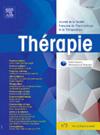COVACPREG, a French prospective cohort study of women vaccinated against COVID-19 during pregnancy
IF 1.8
4区 医学
Q3 PHARMACOLOGY & PHARMACY
引用次数: 0
Abstract
The objective of this cohort study was to describe the French population of pregnant women vaccinated against coronavirus disease 2019 (COVID-19), their pregnancy outcomes and the health status of their newborns (malformation rate, neonatal diseases, etc.), and to proactively collect and analyze reported adverse reactions over time. We conducted a prospective study using an online questionnaire. Women vaccinated during pregnancy who wanted to participate were asked to complete an inclusion questionnaire (dates of pregnancy and vaccination COVID-19, etc.), a questionnaire on the potential occurrence of adverse reactions (time of onset, type of adverse reaction, etc.) of the vaccination, sent 1 month after the injection, and a final questionnaire on the outcome of the pregnancy and the health status of the child. A total of 938 women were prospectively included in this first French study. A total of 132 women reported having had at least 1 adverse reaction following vaccination during pregnancy (14.1%), including few ‘serious’ adverse reaction (5.3%). There were no signals of adverse reactions during continuous monitoring. Among the 938 pregnant women, 22.4% received the vaccination COVID-19 during the first trimester, 64.2% during the second and 33.4% during the third trimester (some women have had several injections in different trimesters). Among the 938 women, 4.3% developed gestational hypertension and 13.9% diabetes; 3.3% had intrauterine growth restriction and 7.8% threatened preterm delivery. These rates are comparable to those observed in the French general population. Among live births, the rate of preterm birth was 5.1%. We reported a prevalence of major malformations of 3.9%, which is comparable to that reported by European Surveillance of Congenital Anomalies (EUROCAT), with a rate of 3.5% of major malformations in the general population of mainland France. In conclusion, our study did not demonstrate any particular safety signals in the event of vaccination with a Covid-19 vaccine during pregnancy.
COVACPREG 是一项法国前瞻性队列研究,研究对象是孕期接种 COVID-19 疫苗的妇女。
这项队列研究的目的是描述法国接种冠状病毒病2019(COVID-19)疫苗的孕妇群体、她们的妊娠结局和新生儿的健康状况(畸形率、新生儿疾病等),并主动收集和分析一段时间内报告的不良反应。我们使用在线问卷进行了一项前瞻性研究。要求在怀孕期间接种疫苗并希望参与研究的妇女填写一份纳入问卷(怀孕日期和接种 COVID-19 疫苗的日期等)、一份在注射疫苗 1 个月后发出的关于接种疫苗后可能出现的不良反应(发病时间、不良反应类型等)的问卷,以及一份关于妊娠结局和婴儿健康状况的最终问卷。共有 938 名妇女被纳入了这项法国的首次研究。共有 132 名妇女报告在怀孕期间接种疫苗后至少出现过一次不良反应(14.1%),其中包括少数 "严重 "不良反应(5.3%)。在持续监测过程中未发现不良反应信号。在 938 名孕妇中,22.4% 在怀孕前三个月接种了 COVID-19,64.2% 在怀孕后三个月接种,33.4% 在怀孕后三个月接种(有些孕妇在不同的三个月接种了几次)。在 938 名妇女中,4.3% 患有妊娠高血压,13.9% 患有糖尿病;3.3% 患有胎儿宫内生长受限,7.8% 可能会早产。这些比率与在法国普通人群中观察到的比率相当。在活产婴儿中,早产率为 5.1%。我们报告的重大畸形发生率为 3.9%,与欧洲先天性畸形监测中心(EUROCAT)的报告相当,法国本土普通人群的重大畸形发生率为 3.5%。总之,我们的研究并未显示孕期接种 Covid-19 疫苗会产生任何特殊的安全信号。
本文章由计算机程序翻译,如有差异,请以英文原文为准。
求助全文
约1分钟内获得全文
求助全文
来源期刊

Therapie
医学-药学
CiteScore
3.50
自引率
7.70%
发文量
132
审稿时长
57 days
期刊介绍:
Thérapie is a peer-reviewed journal devoted to Clinical Pharmacology, Therapeutics, Pharmacokinetics, Pharmacovigilance, Addictovigilance, Social Pharmacology, Pharmacoepidemiology, Pharmacoeconomics and Evidence-Based-Medicine. Thérapie publishes in French or in English original articles, general reviews, letters to the editor reporting original findings, correspondence relating to articles or letters published in the Journal, short articles, editorials on up-to-date topics, Pharmacovigilance or Addictovigilance reports that follow the French "guidelines" concerning good practice in pharmacovigilance publications. The journal also publishes thematic issues on topical subject.
The journal is indexed in the main international data bases and notably in: Biosis Previews/Biological Abstracts, Embase/Excerpta Medica, Medline/Index Medicus, Science Citation Index.
 求助内容:
求助内容: 应助结果提醒方式:
应助结果提醒方式:


